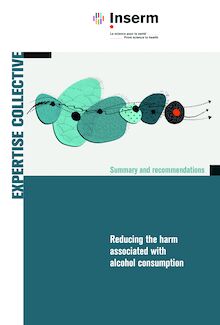Reducing the harm associated with alcohol consumption , livre ebook
129
pages
English
Ebooks
2022
Obtenez un accès à la bibliothèque pour le consulter en ligne En savoir plus
Découvre YouScribe en t'inscrivant gratuitement
Découvre YouScribe en t'inscrivant gratuitement
129
pages
English
Ebooks
2022
Obtenez un accès à la bibliothèque pour le consulter en ligne En savoir plus
Publié par
Date de parution
22 novembre 2022
Nombre de lectures
0
EAN13
9782759830688
Langue
English
Poids de l'ouvrage
5 Mo
Publié par
Date de parution
22 novembre 2022
Nombre de lectures
0
EAN13
9782759830688
Langue
English
Poids de l'ouvrage
5 Mo
